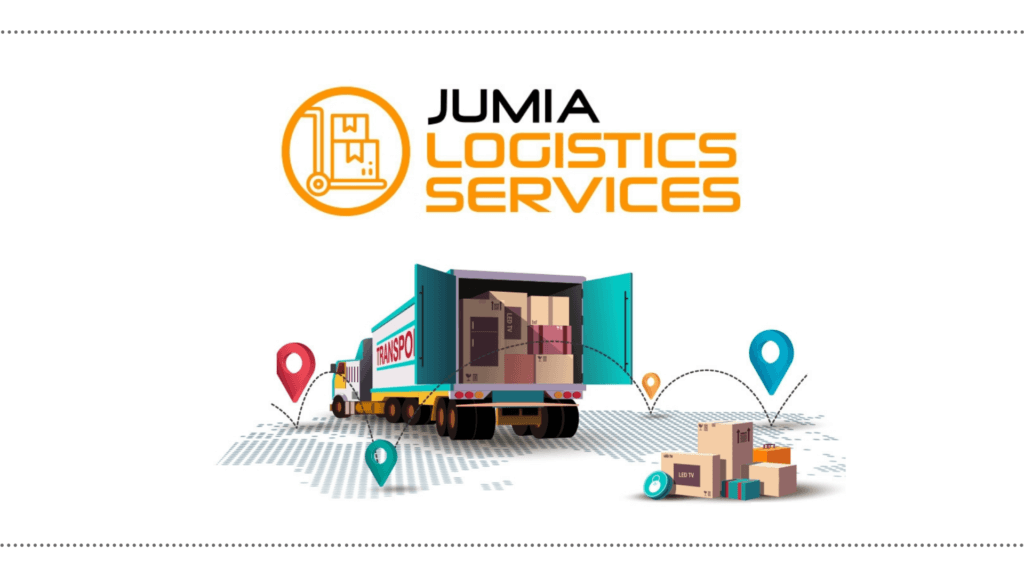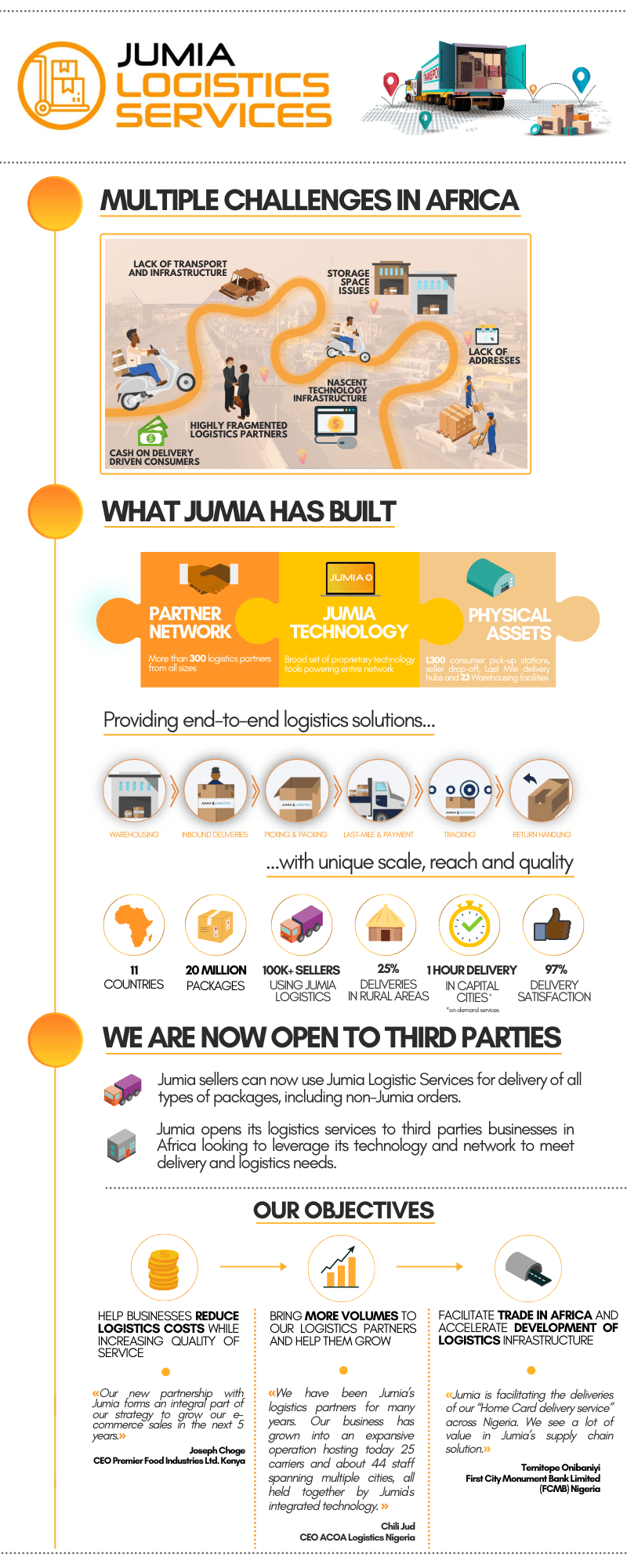Jumia to provide logistics service to third-party businesses across Africa
Jumia Group, the leading e-commerce company in Africa that operates an online marketplace, logistics and payment services, is opening its logistics to third parties.

Jumia Group, the leading e-commerce company in Africa that operates an online marketplace, logistics and payment services, is opening its logistics service to third parties.
This means businesses that are not listed as sellers on its marketplace can now use Jumia logistics to fulfil their orders across the 11 African countries where Jumia operates. Also, Jumia sellers can now use Jumia Logistics Services to deliver all types of packages, including non-Jumia orders.
Apoorva Kumar, Senior Vice President of Logistics Services at Jumia, said businesses across the world are re-examining their costs; prompted by the effect of the global pandemic. "For many businesses, logistics is a major cost driver and headache to manage", Kumar said.
"We have the right infrastructure, people, partnerships, and technology required to help third parties and partners to solve logistics and marketing challenges. We believe we can provide better quality of service at lower cost".
Logistics has been the bane of buying and selling online, especially food vendors, across Africa. In Lagos, the commercial capital of Nigeria and the biggest city in Africa, good logistics service is near non-existent. Sellers and customers are constantly complaining about late deliveries.
Feranmi, who runs Ni Fries Meals, has decried the state of logistics services in the state. "There is no actual logistics firm in Lagos. It's just vibes and nothing else", he said. "How can you pick up a food package and five hours later, you still haven't delivered?"
Because logistics in Lagos requires a day's planning, Ni Fries Meals is unable to provide same day delivery to its customers at the moment. Feranmi noted that providing good logistics is expensive, and it would be higher than the average pay limit of Nigerians.
Kumar said Jumia's technology and last mile services have a wide coverage that enhances faster turnaround time, reliable handling of products and transparent reporting. "All of these have contributed to our success, both in urban and rural areas. We are proud to share this technology with a broader set of businesses and give them new opportunities to grow", Kumar said.
Surprisingly, however, there are litany of complaints about Jumia Foods delivery service. The delivery service is so unpalatable that customers are surprised when their food is delivered within an hour. Because on average, it usually takes Jumia Foods about three hours to deliver food to customers.
Jumia Food delivery came in in 30 minutes. I'm surprised.
— mogwai. (@TheVunderkind) September 28, 2020
I always pick payment on delivery. Anytime their rider arrives late or calls late, I just tell him I’m no longer interested. They once tried to deliver to me after 4 hours and I’m not kidding.
— Obafunke (@Obafunke__) October 31, 2020
According to Jumia, its logistics marketplace is uniquely adapted to Africa based on two pillars. The first pillar is Jumia's proprietary technology which aggregates demand and matches it with supply capacity using parameters such as quality of service, network reach, and cost of delivery. The second pillar is its logistics network, which includes over 20 warehouses and more than 1,300 drop-off and pick-up stations.

In 2019, Jumia said it processed more than 20 million packages which was facilitated by it over 300 local logistics partners, including ACOA Logistics and Gokada. Jumia noted that its partnership with companies such as Total, Vivo Energy, and Postal Corporation of Kenya ensures it has even wider presence across the 11 countries where it operates in Africa.
The opening of Jumia's logistics services to third parties will inadvertently increased the volume its local logistics partners.
"We have been Jumia’s logistics partner for many years. Our business has grown into an expansive operation of 25 carriers and about 44 staff spanning multiple cities. And everything is held together by Jumia’s integrated technology", Chidi Jud, ACOA Logistics CEO, said.
"We have adapted our business using Jumia’s apps that drive riders’ efficiency and customer experience. We are very pleased to be able to receive more volumes in order to help us gain scale and grow our business".
Founded in 2012, Jumia currently operates in Algeria, Egypt, Ghana, Ivory Coast, Kenya, Morocco, Nigeria, Senegal, South Africa, Tunisia, and Uganda.
Although Jumia announced the opening of its logistics service to third parties on November 2, it has been piloting the services with selected clients. The clients range from small businesses moving few packages every week to larger corporations.
"Our new partnership with Jumia forms an integral part of our strategy to grow our e-commerce sales in the next 5 years", Joseph Choge, Premier Food Industries Ltd CEO, said.
"Jumia’s unique ability to handle logistics — order management and processing, shipping and delivery, and payments across the country to end users — has opened for us a new way to reach our consumers in a fast, efficient and effective manner. More so during this time of COVID-19 pandemic".
According to the 2020 Africa Food Index, demography and COVID-19 have been the major drivers of growth for online food delivery and e-commerce. With a growing population averaging 18 years old, a new generation of African middle class consumers are spending more money online on food and grocery services, while the lockdowns induced by the global pandemic also contributed to this evolution in habits.
"Jumia is facilitating the deliveries of our ‘Home Card delivery service’ via road and air freight to customers across Nigeria", Temitope Onibaniyi, Head of Cards and Emerging Payments at FCMB, said. "We see a lot of value in Jumia’s supply chain solution; technology integration with Jumia ensures close to real time visibility and a secure last mile delivery process of card products".






